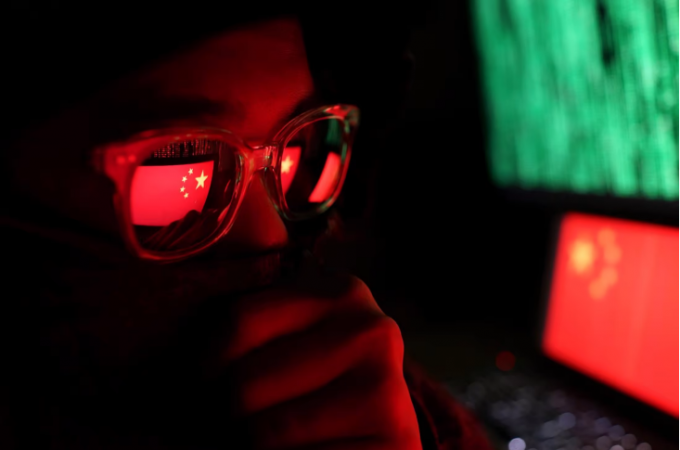
Beijing: China has denounced alleged US cyberattacks on its premier state-funded university and urged Washington to "stop stealing [from] and attacking other countries" in addition to supporting cybersecurity.
This comes after a joint investigation by the university and cyber sleuths revealed that Trojan attacks that resulted in the theft of nearly 140 gigabytes of highly valuable data from networks throughout China in recent years had their origins in the US.
The alleged hacking was denounced by the Chinese foreign ministry, which also declared that "China firmly opposes any form of cyberattacks."
After the results were made public on Monday, spokeswoman Mao Ning said, "Maintaining cybersecurity is the common responsibility of the international community, and we are willing to work with the international community [for]... a shared future in cyberspace."
The investigation was started as a result of Northwestern Polytechnical University informing police in April that they had discovered evidence of cyberattacks on their system.
The Ministry of Industry and Information Technology funds the university in the northwest province of Shaanxi in China.
The university frequently works with the government on national security initiatives, such as the creation of fighter jets.
The thorough investigation report on the attacks was released on Monday by Northwestern's computer virus emergency response centre. It identified the office of tailored operations (TAO), a cyber warfare intelligence-gathering unit of the American National Security Agency (NSA), as the source of the attacks.
The university's information systems and internet terminals were first searched by the joint task force that the centre and the state-owned internet security company Qihoo 360 established.
They then, with the assistance of some European and South Asian nations, determined the routes, sources, techniques, and technical features of the attacks.
The report was released as China's national cybersecurity awareness week got underway, with events planned to increase public awareness of personal data protection and their capacity to protect it.
The investigation also revealed that the TAO had recently stolen over 140GB of highly valuable data from Chinese networks, which were responsible for "tens of thousands" of network devices, including servers and firewalls.
Given Washington's track record, Andy Mok, senior research fellow at the Centre for China and Globalization, a private think tank in Beijing, called the claims made in the report "unsurprising."
According to Mok, "the United States is widely regarded as one of the most aggressive actors in the world of cyber warfare," and he added that these revelations only served to support that perception.
"Cybersecurity will only become more important for its government, businesses, and citizens as China achieves leadership in a growing number of technological fields and becomes an increasingly significant player in global affairs."
Regarding cyberattacks, the US and China have a long history of exchanging accusations.
For instance, the Biden administration charged Beijing with breaking into Microsoft email systems last year. The top rival America has recently been referred to as "the empire of hacking" by China, which has long claimed to be the victim of cyberattacks rather than the perpetrator.
The report on Monday was merely the most recent denial by Qihoo, which is also subject to US sanctions due to national security concerns, that the NSA was behind hacking attacks against China.
APT-C-40, a hacker group linked to the US government and known for attacking top Chinese businesses, governments, research institutions, and infrastructure over the past ten years, according to a company report published in March.
Finding the source of intrusions was difficult, according to A.B. Abrams, an expert on East Asian security at the University of London, but China's accusations were "in line with broader trends towards both greater use of offensive cyber warfare since the Obama years, and greater overall efforts to target China using assets across the spectrum of US capabilities."
Abrams says that in the past, "cyber warfare teams have left traces to trick investigators into attributing their attacks to other actors," most notably under the CIA's "UMBRAGE" project. This has added to the challenges.
Because of this, he continued, experts disagreed as to whether North Korea really did plan the 2014 cyberattacks on Sony Pictures.
The NSA leaker Edward Snowden revealed in 2013 that the network infrastructure of the nation's top university, Tsinghua, was among several targets for American agencies.
According to Abrams, whose most recent book is China and America's Tech War from AI to 5G: The Struggle to Shape the Future of World Order, American cyber warfare efforts targeting Chinese universities would not be unprecedented.
Millions of private text messages belonging to Chinese mobile phone companies as well as Pacnet, the owner of one of East Asia's largest fiber-optic submarine cable networks, were breached.
Although the attacks could pose "a major threat to Chinese security" by destabilising civilian infrastructure and even military plans, he pointed out that China had "very considerable" retaliatory capabilities.
China requests constructive de-escalation talks rather than a cap on the price of Russian oil.
In effort to revive nuclear deal Iran claims India is trying to bring the P5+1 and Tehran "closer"
China's yuan drops to its lowest level in two years as a result of strengthening US dollar